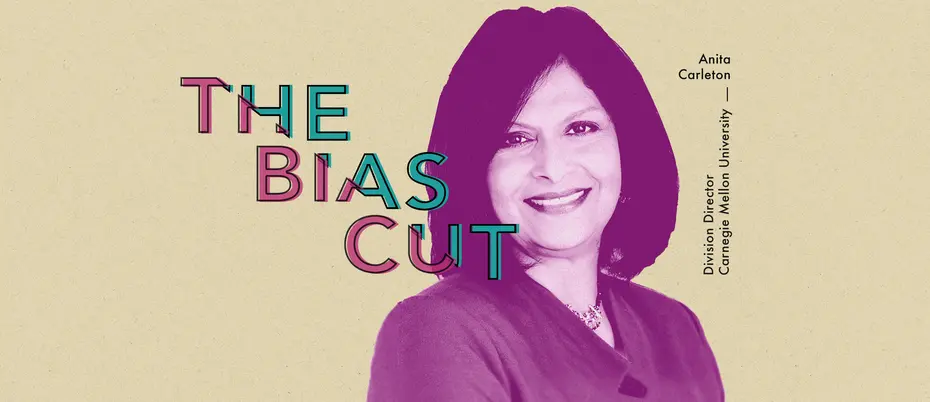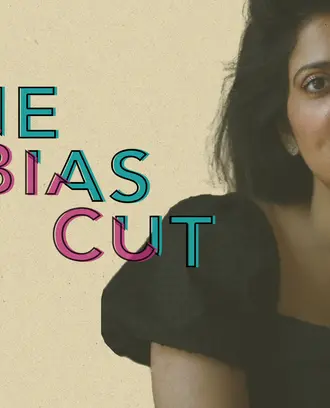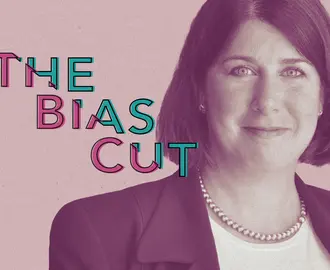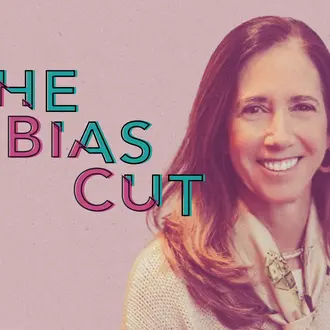The Bias Cut
This Carnegie Mellon director fosters inclusivity through example
“If we want men to change their attitudes toward women, we have to lead by showing what an inclusive and accepting environment looks like.”
A 2019 women’s leadership study from LeanIn.org and McKinsey & Co. found that American women held less than 40% of corporate management positions, and women continue to fight underrepresentation when it comes to board positions and CEO roles. They also face gender bias, harassment, and opposition to their management styles.
Here’s how one Sloan alumna has pushed back on those statistics and used what she’s learned along the way to help those behind her.
Anita Carleton, MBA ’18, executive leadership team member and division director of the Software Solutions Division at the Software Engineering Institute, Carnegie Mellon University
Can you give an example of a time you’ve experienced or witnessed gender bias? How did it affect you professionally? What impact did it have on your job?
I noticed a male colleague would habitually address comments, feedback, and responses only to other men in meetings, strategy sessions, or in research proposal reviews. The issue not only affected my morale but that of other professional women participating in the meetings.
As the senior leader in the room, I had to confront the issue head on. I had to point out these behaviors and ask him to please be more aware and conscious of his unintended behaviors. And I noticed that I had to address this same issue several times with this colleague. Eventually, his behavior changed. He explained that he did not realize that he was responding in meetings in this manner.
While we may encounter negative experiences from time to time, we need to set the stage for broad inclusion in a collaborative environment, where people of all genders feel comfortable making contributions. Women deserve to be heard and treated with the same level of respect that men have traditionally extended to each other — and, in fact, everyone deserves that. If we want men to change their attitudes toward women, we have to lead by showing what an inclusive and accepting environment looks like.
How do you support women coming up behind you?
As a senior leader in our organization, here are some ways I support both women and men in our workplace:
- I fund special projects for growth, visibility, and development; provide opportunities to speak in national and international forums; and offer opportunities to author technical papers and books.
- I examine our company and market data regularly and take action quarterly to address pay equities for all staff. Men and women should be paid equitably for equal work.
- I actively plan for promotions throughout the year, invest in leadership programs, and give special assignments to showcase the strength of staff members.
- In a recent restructuring, I examined our own division structure; I felt we needed a much broader set of perspectives and diversity on our leadership team. We created a new structure that supports future growth in areas of strategic importance, bringing new perspectives, experience, and backgrounds.
Who was an ally or mentor for you as you’ve navigated your career? What made that person stand out, and how specifically did they help you get to the next level of your professional development?
Watts Humphrey was my mentor (at the Carnegie Mellon University Software Engineering Institute), giving me challenging projects to lead, speaking opportunities worldwide, and encouraging me to write my book (in fact he wrote the foreword to it). He was an inspiring, charismatic leader with a bold vision to change the world of software engineering. Watts put forth an energizing goal and an inspiring mission that we all wanted to be a part of.
What is the most difficult lesson you’ve learned in your professional life? In what unexpected ways did you grow from it?
Balancing my career, supporting my husband while he went to law school, and growing our family was challenging enough, so I decided to wait to pursue graduate school until after my sons were in college. While I continue to learn and grow in many dimensions, I regret very much not pursuing my PhD at CMU earlier in my career. I feel that this important credential would have opened up many additional career options and opportunities.
Over time, my role at SEI has grown into management and senior leadership positions. Since I was at a pivotal point in my career, I saw the MIT Executive MBA program as the most significant step I could take toward developing the skills and perspectives I needed to be a more effective executive and to take on the next leadership challenges of my career. In all organizations, there is a need to bring new ideas, thinking, and tools to address complex problems.




